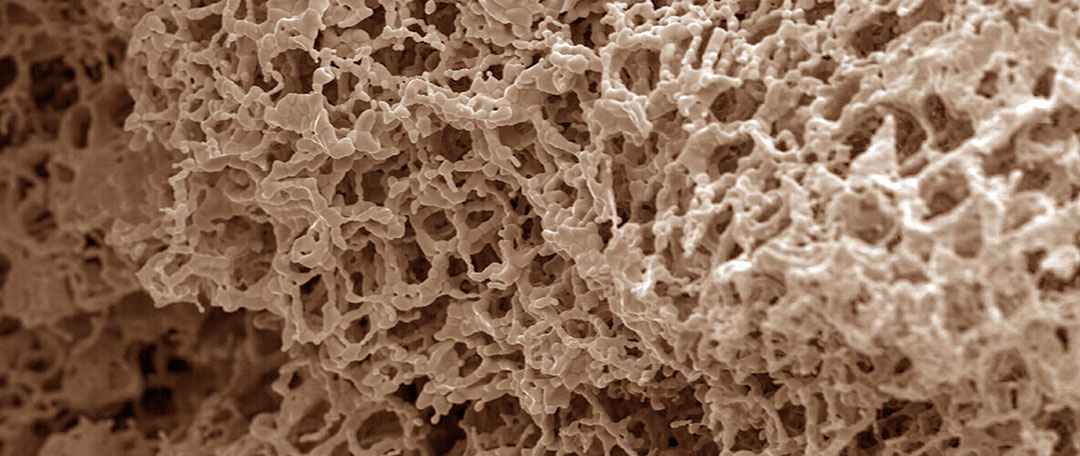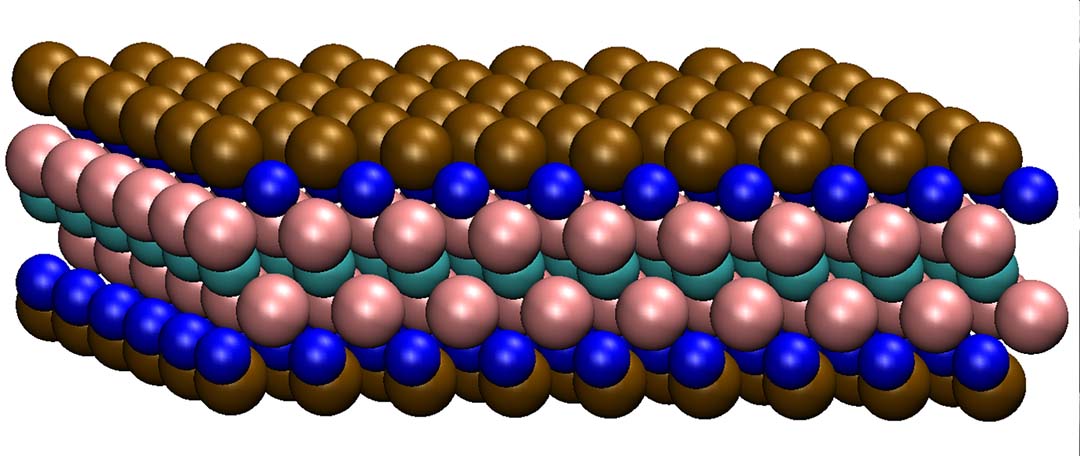Research Groups

Inorganic Functional Nanomaterials and Organic-Inorganic Hybrids
Aims to design, prepare, process and characterize novel inorganic and organic-inorganic multifunctional materials and nanostructures of different (0-3D) dimensionality, for information and communications technologies (optical, magnetic properties), photovoltaics, catalysis, biological and environmental applications.

Multifunctional Ferroic Ceramics and Nanostructures
Preparation, study and development of materials, focusing on electric, magnetic and structural multifunctionalities.

Carbon Materials, Composites and Functional Coatings
New materials for green energy applications, surface functionalization for corrosion protection, alternative bio-based materials (polylactic acid, cellulose, chitosan or carrageenan) and processes.

Biorefineries, Biobased Materials and Recycling
Lignocellulose biorefinery through the development of sustainable processes for biomass valorization by its fractionation, and catalytic conversion into furanic platform chemicals, new biobased polymers and cellulose (nano)composite materials with synthetic/natural matrices; and the valorization of inorganic industrial wastes.

Biomedical and Biomimetic Materials
Development of efficient health-related materials, products and technologies following a bench-tobedside concept via R&D.

Computer Simulation and Multiscale Modeling
Understand the structure of molecular systems, from atoms (electronic structure methods) to realistic devices (finite element method); calculate their physicochemical properties, and predict their behavior under diferent conditions.
Research Lines

Information and Communication Technology
Solid-state lighting, nanoscale & molecular sensing, integrated optics, photovoltaic energy conversion, internet of things, ferroic devices, interconnection and packaging technologies.

Energy and Industrial Applications
Electricity storage, alternative energy sources, valorization of industrial wastes, processes for novel technologies, additive manufacturing, materials and coatings with novel functionalities.

Sustainability
Biorefinery and circular economy, materials for sustainable energy production and materials for polution control.

Health
Biomaterials for regenerative medicine, nanoparticles (nps), drugs & drug delivery and analytical tools.
Materials for sustainable development
General Aims
Materials to be developed span from ceramics and inorganic materials to soft matter, biopolymers and organic-inorganic hybrids. They will be "right-size" materials, prepared and processed at the appropriate length scale, or hierarchically structured, often multifuncional.MATERIALS SCIENCE AND ENGINEERING, AND NANOTECHNOLOGY
- To design, prepare, process and characterize: Inorganic and organic-inorganic multifunctional materials and nanostructures of different (0-3D) dimensionality, for the information and communications technologies (optical, magnetic properties), photovoltaics, catalysis, biological and environmental applications; ferroics and nanostructures for integration in electronic, magnetic, electromechanic, thermal or biomedical devices and energy saving applications;
- To increase the performance and added value of materials via surface functionalisation for corrosion protection, wear resistance, various sensors, and innovative multifunctional configurations;
- To study molecular systems structure, from atoms to devices, calculate their physicochemical and electronic properties, predict their behaviour, viz., under pressure and temperature.
SUSTAINABILITY AND CIRCULAR ECONOMY
- To develop new products based on renewable resources to replace fossil raw materials as sources of commodities and specialty chemicals, materials and fuels, based on sustainable processes;
- To address in particular the “plastic problem” by developing biobased and biodegradable functional polymers, and processes that enhance the circularity of conventional plastics;
- To develop new processes to add value to waste streams, by recovering, or converting them, into a secondary source of raw materials;
- To design, prepare, process and characterize new materials for pollution control, in particular materials to assist the decarbonisation of industrial processes by CO2 separation, capture and conversion; (ad/ab)sorbents or new catalysts to remove contaminants from air (e.g., NOx, CO, VOCs) or water (e.g., heavy metals, drugs, pesticides and persistent pollutants);
- To develop and design materials and devices for sustainable energy production, namely energy harvesting, energy storage, thermoelectric energy conversion, and more efficient thermal processes without greenhouse gases;
- To assess the environmental impact of the novel solvents, materials, products and processes being studied.
BIOMEDICAL SCIENCE AND ENGINEERING
- Biomaterials for regenerative medicine and disease modelling: development of inorganic, macromolecular, composite or self-assembled molecules, processed by advanced methodologies to develop biomedical and cells-combined constructs that may be used in tissue engineering and personalised medicine, both for therapies to regenerate damaged tissues, and as platforms for in vitro drugs screen;
- Cell-based therapies for prevailing relevant health problems, exploring scaffold-free, nanobiomaterials and surface cell engineering approaches;
- In silico methodologies: use of quantum calculations and molecular dynamics simulations for the modelling the interaction of drugs with biological targets;
- Analytical tools: metabolomics to assess material-organism interactions and improve disease management, monitoring of complex cellular processes and biomaterials development;
- Sustainable strategies in biomedicine: valorisation of natural products for the development of advanced and multifunctional biomaterials; use of mild and green processes for the development of cost-effective purification processes for biopharmaceuticals.
We use cookies for marketing activities and to offer you a better experience. By clicking “Accept Cookies” you agree with our cookie policy. Read about how we use cookies by clicking "Privacy and Cookie Policy".
Personal data
CICECO-Aveiro Institute of Materials respects your privacy, ensuring confidentiality of personal data you share with the institution through this way, not collecting any personal information about you without your consent, under the terms required by General Data Protection Regulations (RGPD).
The data collected in forms are intended exclusively for processing user requests and will not be used for any other purpose, always safeguarding their confidentiality, under the terms of the protection conferred by the aforementioned regulation.
The collection and processing of data is the responsibility of CICECO and its storage is properly protected, only authorized CICECO employees can access the information within the scope of their functions, always being clear in the respective collection forms the purposes for which they are intended. The remaining issues to be considered in this matter will be handled by the University of Aveiro in accordance with the regime established by the GDPR.
Cookies policy
Cookies are small files with alphanumeric information that are stored on your computer's hard drive by your browser and are intended to improve the user experience and enhance website navigation.
Collection and use of technical information
The cookies used on CICECO are anonymous, and no information about our users that allows their personal identification is stored in them.
The technical information recorded consists of:
- iP (Internet Protocol) address of the visitor;
- the type of internet browser used by the website visitor and the respective operating system used;
- the date and time of the consultation;
- the pages visited on the site and the documents downloaded
- The technical information collected is used for statistical purposes only.
Cookies used
Session cookies
These cookies are used to record user preferences, such as the language in which websites are displayed or to maintain authenticated user sessions, and are automatically deleted when the browser is closed.
Persistent cookies
These cookies store information that is needed between sessions. For example, a persistent cookie is set to record that you have been made aware of the cookie policy so that the message regarding this policy is not shown again the next time you visit the website. This cookie remains on the computer until it reaches its expiry date or is deleted by the user.
Data protection
The present privacy policy covers the Information System of the University of Aveiro (SIUA), governed by the General Data Protection Regulations (RGPD) Regulation (EU) No. 2016/679, of April 27th, 2016.
Data Protection Officer
The University of Aveiro has a Data Protection Officer (DPO), who ensures compliance of the processing of personal data with the legislation in force, and is available through the following email address epd@ua.pt.

